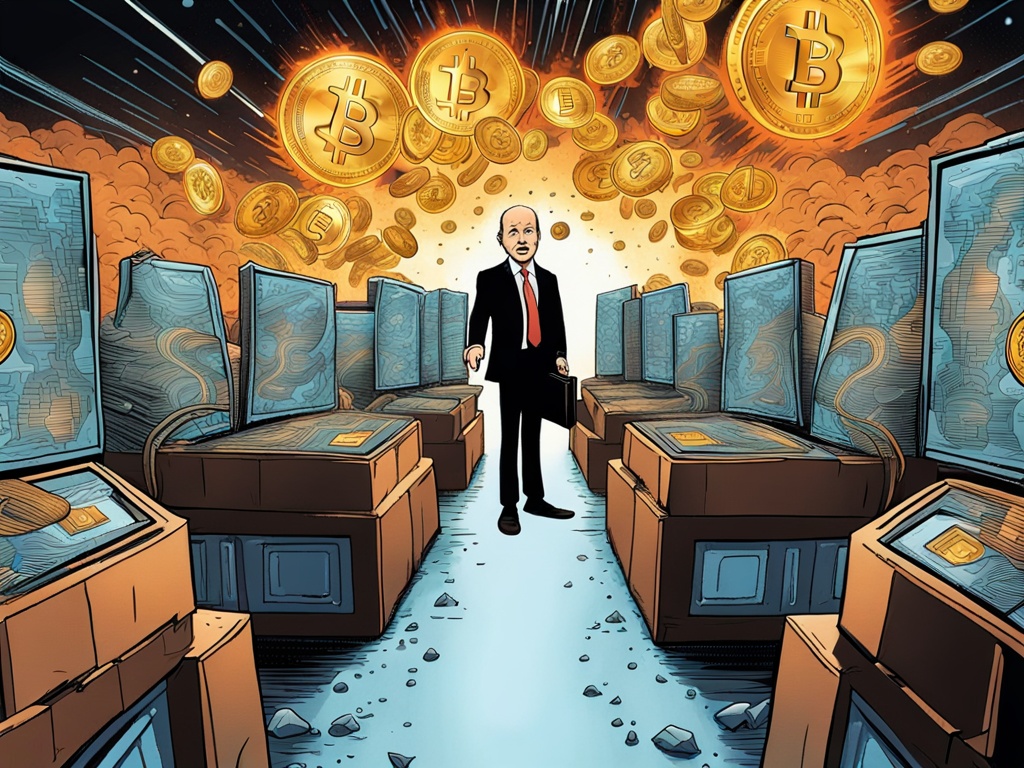Is the Crypto Market Ready for WhatsApp’s Data Sharing Controversy?
Oh, my God, have you heard about the whole drama involving WhatsApp and the Competition Commission of India (CCI)? It’s seriously wild and I think it has major implications for the crypto market! Let’s break it down, it’s like a spicy Bollywood plot twist, but instead of stars, we have data sharing, advertising, and regulations.
Key Takeaways:
- Meta’s Fight: Meta Platforms (parent of WhatsApp) is appealing against a five-year data-sharing ban.
- Economic Impact: The ban could threaten WhatsApp’s business model in India, which is pivotal for digital businesses, including crypto.
- Market Sensitivity: How this plays out may influence investor sentiment in the crypto space.
- User Trust: The unfolding situation could affect trust in digital platforms, which is essential for crypto adoption.
What’s Happening Now?
So, here’s the gist: An Indian appeals tribunal has decided to temporarily pause the CCI’s decision to impose a five-year ban on WhatsApp sharing user data with Meta’s other platforms like Facebook and Instagram for ad purposes. This is huge! Meta argues that this ban could "possibly collapse" its business in India.
Just imagine this—you wake up one day and find out that your favorite app might not be able to offer you personalized ads anymore. What a bummer! On top of that, it may have to roll back features that you’ve loved! It’s like waking up to find that your local chai wala has decided to close shop!
Why Should We Care in the Crypto Space?
Here’s where it gets interesting for us crypto enthusiasts. First off, the user data that companies such as Meta collect plays a massive role in shaping digital marketing and advertising strategies. If WhatsApp gets hit hard, it could ripple through into the already shaky ad revenue estimates for crypto apps and platforms. Imagine traders and platforms losing valuable insights because of restrictions.
Investors are always hunting for trends, and not having data can undermine trust in investment decisions. If users begin to lose confidence in big platforms, they might hesitate to join decentralised finance (DeFi) apps or other crypto platforms that rely on robust data for functionality. I mean, if you’re not trusting your information, how can you trust the investments you’re making?
Seeing Opportunity Amidst Uncertainty
This situation prompts us to think critically about our investments. When drama unfolds in one sector, it can open doors in another—this is where being agile comes into play! Here are some practical tips for navigating this potential sea-change:
-
Stay Informed: Keep an eye on news related to Meta and WhatsApp. This drama will influence how digital platforms operate and could ultimately affect crypto too.
-
Diversify Your Investments: Consider diversifying your portfolio across platforms that aren’t primarily dependent on big tech data. This can hedge against potential downturns caused by what happens with WhatsApp.
- Invest in Privacy Coins: With rising concerns over data privacy, privacy-centric cryptocurrencies may see a surge in interest. Coins like Monero or Zcash might just be worth more of a look!
Insights on User Trust
Honestly, trust is a DEEP emotional game when we talk about finance, especially with something as new and volatile as crypto. User confidence in platforms directly influences trading volumes and overall market health. If people feel uncomfortable with how their data is being handled, trust erodes, and when trust falters, technology fails to uptake!
This rollercoaster will affect not just Meta and its users but potentially have a sweeping effect on all digital platforms. Can you feel the ripple effect? It’s like throwing a pebble in a pond—the circles just keep expanding!
The Bigger Picture
It’s not just about WhatsApp vs. the authorities; it’s about how regulations can impact the innovation vitality of tech companies which, as you might guess, affects how those companies let their apps integrate with crypto solutions. Global red tape can sometimes feel suffocating, right?
In countries where regulations are tight, you may see a decline in crypto adoption. But this can also give rise to alternative platforms that are more aligned with decentralization, and that could be a silver lining!
So, as we watch this saga unfold, let’s ponder—how deeply do we trust the platforms we use every day? And more importantly, how does that trust influence our investment strategies in the ever-evolving, fast-paced world of cryptocurrencies?
Stay savvy, my fellow investors! 💪✨





 By
By
 By
By
 By
By
 By
By
 By
By